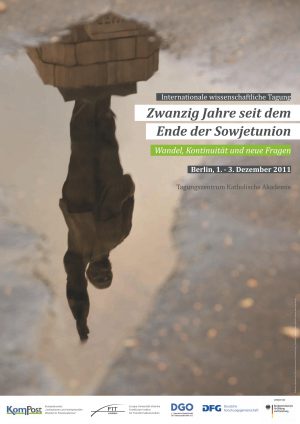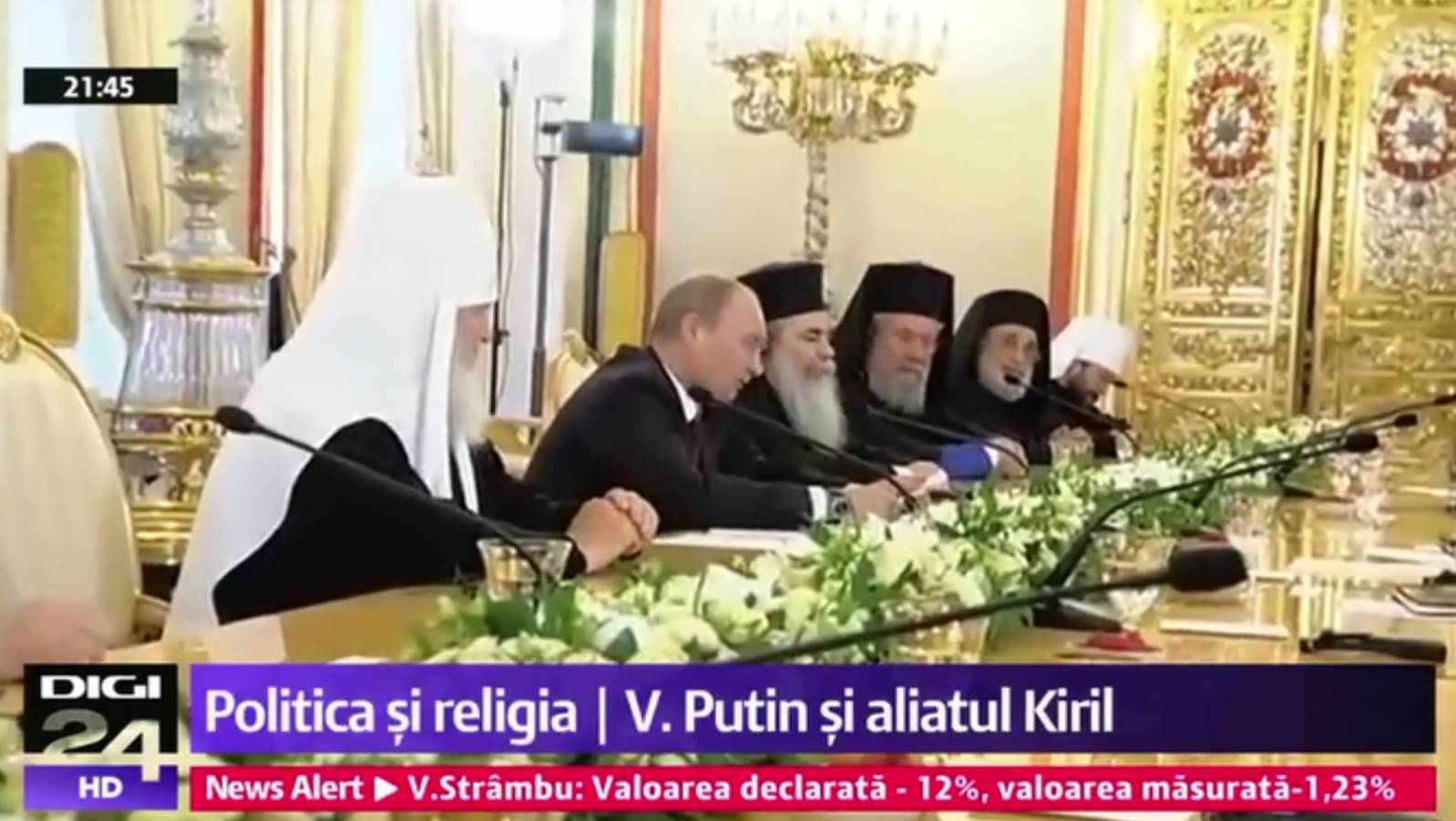Conference organized by the Project Network “
Institutions and Institutional Change in Postsocialism“, German Association for East European Studies (
DGO) and Frankfurt Institute for Transformation Studies (
FIT), Berlin 1-3 December 2011
 The dissolution of the Soviet Union at the end of 1991 marked the collapse of a state, of an empire, and of a project of an alternative modernity. Initially, the collapse of the “Soviet civilization” seemed to provide an opportunity for the countries of the CEE and Eurasia to arrive in the West with its capitalist democracies, its liberal individualist values, and a global pax americana. History as a struggle between ideologies appeared to have reached its (liberal) end. This was an error of judgement, however. Since then, new, non-Western powers and global threats have emerged, and the historico-political region “Eastern Europe” has disappeared. Today, this region is more diverse than any other region in the world: while most of the countries of Central and Southeast Europe adapt successfully to the liberal standards of the West and are now members of the European Union, the post-Soviet states have embarked on a search for alternatives. Here, we encounter authoritarian and semi-authoritarian regimes and state-run capitalist economies, new regional cooperation and security alliances, as well as attempts to develop local models or to learn from other non-Western experiences, especially from China and the Asian “tigers”.
The dissolution of the Soviet Union at the end of 1991 marked the collapse of a state, of an empire, and of a project of an alternative modernity. Initially, the collapse of the “Soviet civilization” seemed to provide an opportunity for the countries of the CEE and Eurasia to arrive in the West with its capitalist democracies, its liberal individualist values, and a global pax americana. History as a struggle between ideologies appeared to have reached its (liberal) end. This was an error of judgement, however. Since then, new, non-Western powers and global threats have emerged, and the historico-political region “Eastern Europe” has disappeared. Today, this region is more diverse than any other region in the world: while most of the countries of Central and Southeast Europe adapt successfully to the liberal standards of the West and are now members of the European Union, the post-Soviet states have embarked on a search for alternatives. Here, we encounter authoritarian and semi-authoritarian regimes and state-run capitalist economies, new regional cooperation and security alliances, as well as attempts to develop local models or to learn from other non-Western experiences, especially from China and the Asian “tigers”.
On the one hand, the conference aims to inquire after the essence of developments that are generally referred to as “post-Soviet”. The post-Soviet states did not emerge out of a tabula rasa. On the contrary, actors were confronted with the problem of how to overcome as quickly as possible the early uncertainty about rules, the constellation of relevant actors and available institutional options. Thus, actors referred to historical legacies, borrowed from international experiences, and engaged in experiments. The dynamics of these experiments, their (provisional) outcomes, and their functional as well as normative consequences will be discussed in the panels. On the other hand, the international impact of the collapse of the Soviet Union will be analyzed in terms of international relations as well as of lessons learned by actors in other parts of the world.
Conference program:SU_Anniversary_Program
Reader:SU_Anniversary_Reader
 More frequent references and appeals to shared religious beliefs in recent years reflect the growth of right-wing populism, uncertainties caused by the crisis of European integration and fears regarding the inflow of predominantly Muslim refugees. The extent to which religious references are made in political discourses also varies according to the strength of religious allegiances and the respective influence of churches in societies. Contemporary resonance structures are rooted in state identities and the influences of historical state-building coalitions with churches.
More frequent references and appeals to shared religious beliefs in recent years reflect the growth of right-wing populism, uncertainties caused by the crisis of European integration and fears regarding the inflow of predominantly Muslim refugees. The extent to which religious references are made in political discourses also varies according to the strength of religious allegiances and the respective influence of churches in societies. Contemporary resonance structures are rooted in state identities and the influences of historical state-building coalitions with churches. The dissolution of the Soviet Union at the end of 1991 marked the collapse of a state, of an empire, and of a project of an alternative modernity. Initially, the collapse of the “Soviet civilization” seemed to provide an opportunity for the countries of the CEE and Eurasia to arrive in the West with its capitalist democracies, its liberal individualist values, and a global pax americana. History as a struggle between ideologies appeared to have reached its (liberal) end. This was an error of judgement, however. Since then, new, non-Western powers and global threats have emerged, and the historico-political region “Eastern Europe” has disappeared. Today, this region is more diverse than any other region in the world: while most of the countries of Central and Southeast Europe adapt successfully to the liberal standards of the West and are now members of the European Union, the post-Soviet states have embarked on a search for alternatives. Here, we encounter authoritarian and semi-authoritarian regimes and state-run capitalist economies, new regional cooperation and security alliances, as well as attempts to develop local models or to learn from other non-Western experiences, especially from China and the Asian “tigers”.
The dissolution of the Soviet Union at the end of 1991 marked the collapse of a state, of an empire, and of a project of an alternative modernity. Initially, the collapse of the “Soviet civilization” seemed to provide an opportunity for the countries of the CEE and Eurasia to arrive in the West with its capitalist democracies, its liberal individualist values, and a global pax americana. History as a struggle between ideologies appeared to have reached its (liberal) end. This was an error of judgement, however. Since then, new, non-Western powers and global threats have emerged, and the historico-political region “Eastern Europe” has disappeared. Today, this region is more diverse than any other region in the world: while most of the countries of Central and Southeast Europe adapt successfully to the liberal standards of the West and are now members of the European Union, the post-Soviet states have embarked on a search for alternatives. Here, we encounter authoritarian and semi-authoritarian regimes and state-run capitalist economies, new regional cooperation and security alliances, as well as attempts to develop local models or to learn from other non-Western experiences, especially from China and the Asian “tigers”.